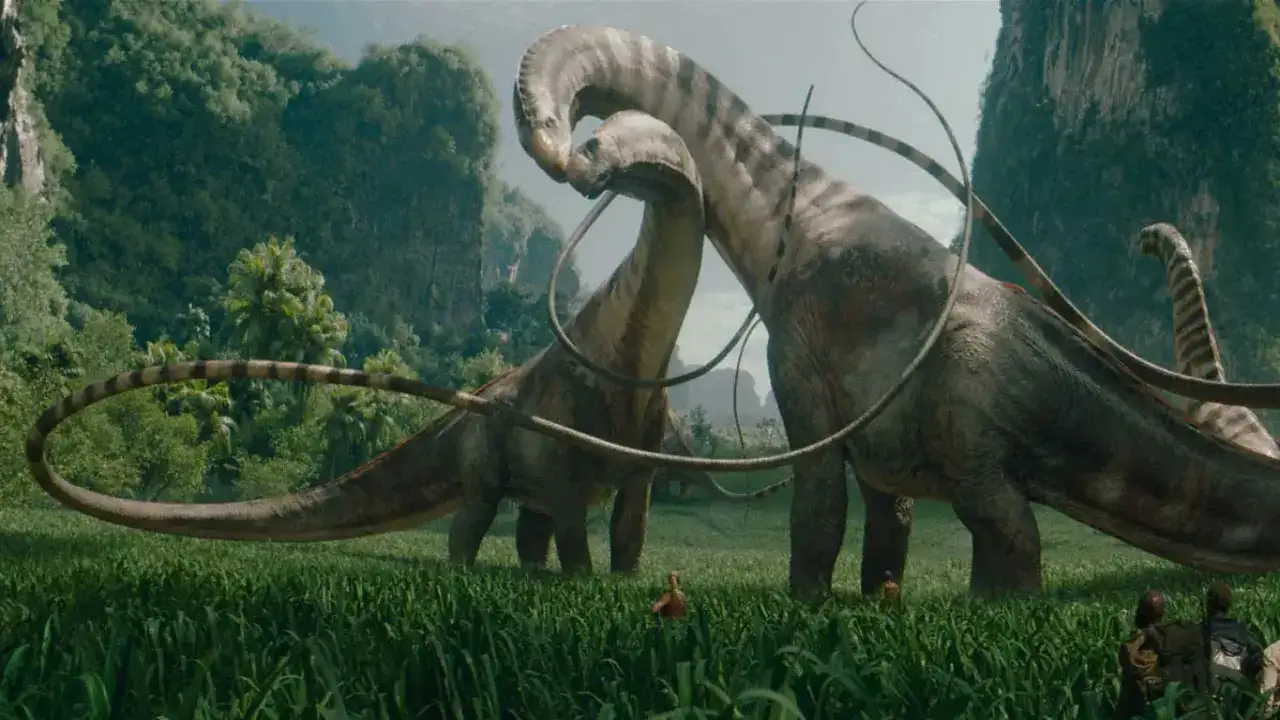By Soumyabrata Gupta
It was 1993, and I still remember the first time I stepped into a movie theatre, my small hand wrapped tightly in my father’s—a rare and special outing. The film was Steven Spielberg’s Jurassic Park, and from the moment the screen lit up, I was spellbound. Spielberg didn’t just bring dinosaurs to life; he resurrected a sense of wonder. With a masterful blend of awe, imagination, and fear, he transported us to a world where the prehistoric past wasn’t just history—it was suddenly, thrillingly, real. Over the years, each of the films in the franchise, irrespective of their box office has remained personal favourites. Now, as anticipation builds for the latest in the franchise – Jurassic World Rebirth, one cannot help but revisit the legacy of a cinematic universe that began over three decades ago. And while Rebirth promises to introduce a fresh cast in Scarlett Johansson and Jonathan Bailey, along with new evolutionary twists to the prehistoric chaos, at its core, the film is perhaps yet another chapter in a cautionary tale about human ambition, the illusion of control, the act of playing God and ultimately, the enduring theme of hubris. Ever since its inception with the 1993 classic Jurassic Park, the franchise has always been more than just a ground-breaking showcase of visual effects and dinosaur thrill. Based on Michael Chrichton’s novel of the same name, Jurassic Park struck a chord because amidst all its visual spectacle, it questioned the ethics of scientific overreach and moral dilemma. In its introduction of John Hammond, the billionaire whose dream of resurrecting the prehistoric creatures through genetic engineering, it paved the path of showcasing what happens when Man plays God. Also Read: Jurassic World Rebirth: Why Are Fans Divided? Deep Dive Into A Growing Dissent Over Mutant Dinosaurs The now-iconic line, “Your scientists were so preoccupied with whether they could, they didn’t stop to think if they should,” uttered by Dr. Ian Malcolm, serves as the franchise’s moral compass—one that every subsequent film has circled back to. With the 1997 The Lost World: Jurassic Park, Spielberg continued the narrative, taking the audience to Isla Sorna, a second island where dinosaurs roamed free without human interference. However, human greed prevailed —this time in the form of corporate exploitation, as InGen attempted to bring dinosaurs to the mainland to score a profit. What followed was an inevitable carnage that underscored the impossibility of domesticating nature. Similarly, Joe Johnston’s Jurassic Park III, which released in 2001, and is often considered to be the weakest in the series, Dr Alan Grant was tricked into returning to Isl Sorna, becoming, in the process, witness to the folly of human arrogance once more. The film underscored the message that the past is not a petting zoo, and prehistoric creatures, once unleashed, cannot be conveniently contained. Also Read: Jurassic Park: The Steven Spielberg Film Which Turned Dinosaurs Into Superheroes In 2015, after a 14-year-hiatus, Jurassic World rebooted the franchise for a new generation, while also introducing Chris Pratt to the franchise. The original theme park dream had finally been realized and Jurassic World was a fully functioning tourist destination. However, both the world and the dinosaurs ad changed. And in a bid to wow increasingly desensitised audiences (a meta-commentary on blockbuster culture itself), scientists created the Indominus rex, a genetically engineered hybrid designed for maximum spectacle. However, as luck would have had, the monster broke free, triggering chaos that was all too familiar yet chillingly relevant. The film, very craftily reframed hubris not just as scientific overreach but rather as capitalist excess – tampering with nature to meet consumer demand. 2018’s Jurassic World Fallen Kingdom doubled down on the consequence. When a volcanic eruption threatens Isla Nublar, a rescue mission became a smokescreen for corporate malfeasance. Dinosaurs were auctioned off as weapons and luxury pets, and genetic manipulation reached disturbing new heights with the introduction of the Indoraptor. The film, interestingly, also included a twist in the cloned human child, Maisie Lockwood, who became central to the story, blurring the line between science fiction and ethical dilemma. As dinosaurs escaped into the human world by the film’s conclusion, the franchise moved into uncharted territory — a world where humans must learn to coexist with dinosaurs. Jurassic World Dominion (2022) brought back legacy characters like Ellie Sattler, Alan Grant, and Ian Malcolm to confront the next wave of ecological imbalance. The film introduced genetically modified locusts, linking the franchise’s themes of bioengineering to real-world agricultural fears. Dominion reiterated the franchise’s central warning: meddling with nature—whether through cloning, commodification, or control—inevitably leads to unintended consequences. Now, as Jurassic World: Rebirth prepares to usher in a new era, questions abound. Will the franchise pivot toward a darker, more introspective tone, or lean into its blockbuster legacy? Early hints suggest that the story may tackle themes of accelerated evolution and unnatural selection, potentially pushing the franchise into speculative sci-fi territory. Also Read: Jurassic World Rebirth: 7 TOP Tweets To Read Before Watching Scarlett Johansson, Jonathan Bailey Dino EPIC The Jurassic saga has, over seven films, evolved from a man-versus-nature thriller to a meditation on ethics, technology, and ecological balance. What commenced as a simple premise – resurrecting dinosaurs – has metamorphosed into a sprawling narrative about the dangers of unchecked ambition and the illusion of control. Each film, in its own way, asks a chilling question: what happens when humanity refuses to learn from its mistakes? As Jurassic World: Rebirth looms on the horizon, one cannot help but reflect that the message remains constant—when humans play god, nature doesn’t just fight back, it rewrites the rule book.
